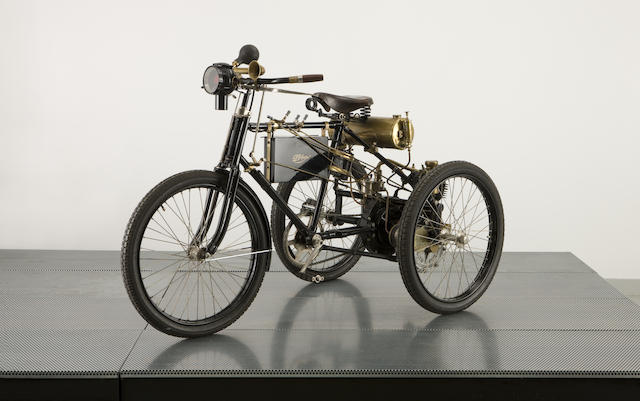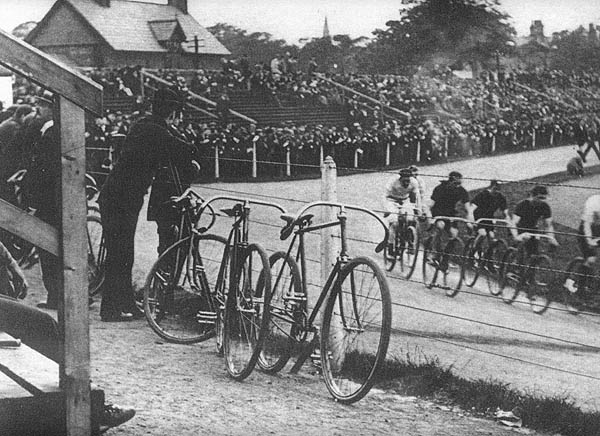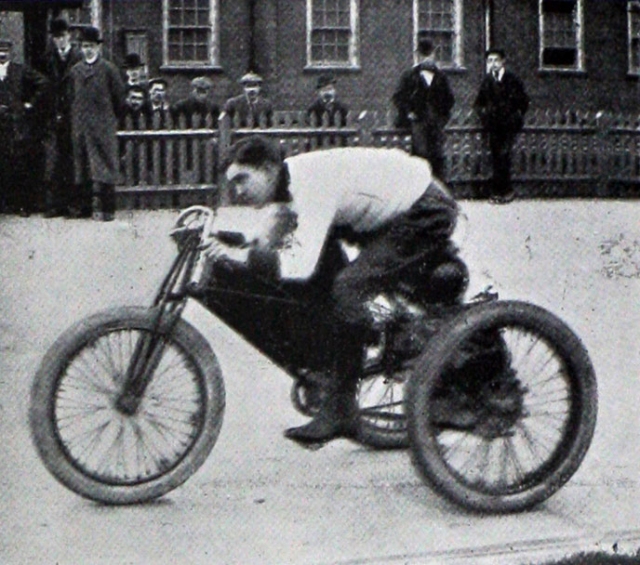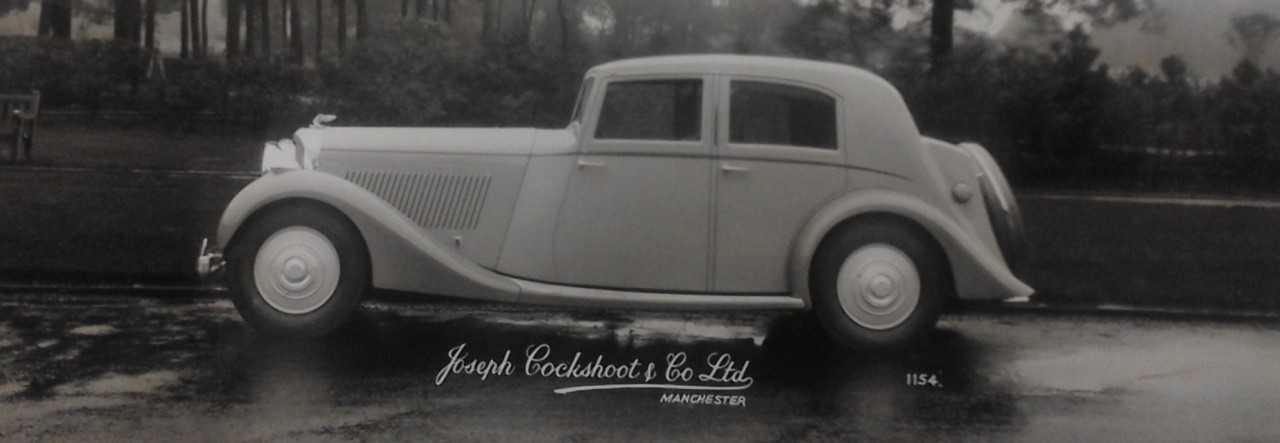In August 1899 The Autocar reported what could have been the first motor race in Manchester:
“The motoring racing at the Manchester Charity Tournament, which was held at Fallowfield on Saturday last, proved very disappointing. Only two competitors out of seven entrants put in appearances in the two handicaps for motor cycles.”
The two competitors that turned up were Dan Simpson, (subject of a previous blog) riding a one and threequarter horsepower Peugeot; and C. G. Wridgway on a two and a quarter horsepower Phebus tricycle. A restored example of which is pictured below.

Wridgway won comfortably over Simpson in both mile and two mile races at an average speed of 26mph. His win was probably due to his horsepower advantage; yet Wridgway was also a champion cyclist, and nearly all early motorcycles had pedals, (see the above example) so he was likely superior to Simpson in this regard as well.

The Fallowfield Track was founded as a cycling circuit in 1892 and was the home of the Manchester Wheelers, a cycle club still going today. The track was used for regular cycle races, which were very popular in Manchester during the 1890s. Research by N. Clayton shows that the Mile Championship of 1896 had 10,000 specators, whilst the crowd was so big in 1897 that the gates were closed. Amazingly the FA cup final of 1893 was held at the track, Wolves beating Everton 1-0. An interesting pictorial history of the track can be found here.
While The Autocar understandably labelled to race as disappointing, the event was of significance for the establishment of motorcycling in Manchester. After the race Wridgeway tackled the 10 mile cycling track record on his motorised tricycle (what a cheat!). Unsurprisingly he beat the record at an eye-watering average speed of 32mph. This was very impressive for the time, and would have encouraged cyclists to try this new, quicker form of transport if they could afford it.
Evidently motorcycle racing had proved popular as the next noted motor race at the Fallowfield track was held a year later, in July 1900. A note in The Autocar reported:
“Several of the leading motorists in England have promised to appear at the Manchester Wheelers’ race meeting on the Fallowfield track on July 14th, when the programme will comprise a couple of motor races. Messrs. S. F. Edge, C. Jarrott, J. W. Stocks, and F. F. Wellington are among those expected to take part.”
The meet was a combination of cycle and motorcycle races with a large crowd of 12,000 people. The cycling columnist in the Manchester Guardian described the event:
“The Motor tricycle races were an interesting novelty, though more excitement would have been aroused had not C. Jarrott been allowed to win both the mile and the ten miles so easily. The absence of S. F. Edge… made what would have been an exciting race a mere exhibition.” MG 16 July 1900
The winner Charles Jarrott, would go on to play an important part in the success of Crossley Motors, one of the more prominent Manchester motorcar manufacturers.

These early races formed an important role for those involved in the motor trade. They were able to publicise their products, they could tinker, and test attributes such as power, handling and ride. We know there were several local manufacturers experimenting with motorcycle manufacture in 1899 and 1900, and further research is needed to see if any of their machines took part alongside the established French machines at these races. Were any in the crowd inspired by what they were watching to modify their own bicycles with motorised traction?

